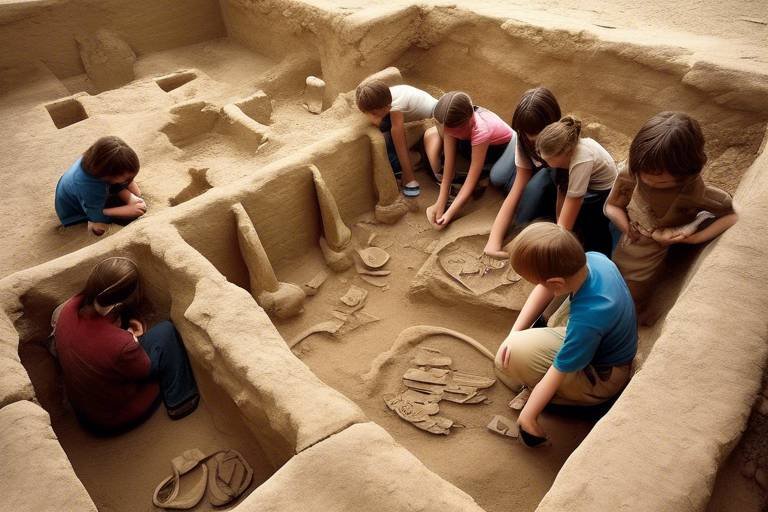Understanding the Zoroastrian Religion and Its Teachings
The Zoroastrian religion, one of the world's oldest faiths, offers a unique window into ancient beliefs and practices that have influenced cultures and societies for millennia. Rooted in the teachings of the prophet Zarathustra, Zoroastrianism presents a worldview shaped by the concepts of dualism, the eternal battle between good and evil, and the pursuit of righteousness in thought, word, and deed.
At the core of Zoroastrianism lies the belief in Ahura Mazda, the supreme deity embodying wisdom, truth, and goodness. Followers of this faith strive to align themselves with the divine through ethical living, upholding principles of honesty, justice, and compassion in their daily lives.
The scriptures of Zoroastrianism, including the Avesta and the Gathas, serve as guiding lights for believers, offering insights into the nature of existence, the importance of moral conduct, and the ultimate triumph of good over evil. These sacred texts form the foundation of religious practices and rituals observed by Zoroastrians around the world.
Rituals in Zoroastrianism are imbued with symbolism and meaning, with fire playing a central role as a representation of purity and divine presence. The practice of charity and good deeds is also emphasized, reflecting the belief that positive actions contribute to the ongoing battle against malevolent forces.
Throughout history, Zoroastrianism has left a profound impact on world religions, influencing the development of concepts such as monotheism, eschatology, and moral dualism. The teachings of Zarathustra have resonated across cultures, shaping the beliefs and practices of diverse faith traditions.
In the modern world, Zoroastrian communities face both challenges and opportunities as they seek to preserve their heritage and values in a rapidly changing global landscape. The principles of Zoroastrian ethics, rooted in truth and righteousness, continue to inspire dialogue and cooperation among people of different faiths, fostering understanding and harmony.
As we strive to comprehend the teachings of the Zoroastrian religion, we are reminded of the enduring relevance of its message of goodness, justice, and the eternal quest for a better world. By exploring the rich tapestry of beliefs and practices within Zoroastrianism, we gain insights into the human pursuit of meaning, purpose, and spiritual fulfillment.

Origins of Zoroastrianism
Zoroastrianism, one of the world's oldest religions, traces its origins back to ancient Persia, now modern-day Iran. The faith was founded by Zarathustra, also known as Zoroaster, a prophet who lived around the 6th century BCE. Zarathustra is believed to have received divine revelations from Ahura Mazda, the supreme deity in Zoroastrianism, which formed the basis of the religion's core teachings.
The teachings of Zoroastrianism revolve around the concept of dualism, the belief in the eternal struggle between good and evil. Ahura Mazda, the god of light and goodness, is opposed by Angra Mainyu, the destructive spirit of darkness and evil. Zoroastrians are encouraged to align themselves with the forces of good by practicing virtuous thoughts, words, and deeds.
The early followers of Zoroastrianism were primarily nomadic tribes in ancient Persia, who embraced the teachings of Zarathustra and passed them down through oral traditions. Over time, these teachings were codified into sacred texts known as the Avesta, which contain hymns, prayers, and rituals that guide the religious practices of Zoroastrians.
Fire, symbolizing purity and divine light, plays a central role in Zoroastrian rituals. Fire temples are places of worship where Zoroastrians gather to offer prayers and participate in ceremonies aimed at promoting spiritual purity and harmony. Additionally, Zoroastrians adhere to strict purity laws, emphasizing cleanliness and ethical conduct in their daily lives.
The ethical principles of Zoroastrianism emphasize the importance of truthfulness, justice, and compassion towards all living beings. Zoroastrians are encouraged to lead a life guided by moral integrity, practicing charity and good deeds to uphold the values of their faith. The eternal battle between good and evil serves as a moral compass for followers, guiding their actions and decisions.

Core Beliefs of Zoroastrianism
Exploring the ancient Zoroastrian faith, its core beliefs, practices, and impact on history and culture, providing insights into the teachings of this influential religion.
Delving into the historical roots of Zoroastrianism, tracing its beginnings in ancient Persia and the life of its founder, Zarathustra.
Zoroastrianism, one of the world's oldest monotheistic religions, is centered on the belief in dualism, the eternal struggle between good and evil. Followers of this faith adhere to the principle of good thoughts, good words, and good deeds, emphasizing the importance of leading a righteous and ethical life. The core belief in Zoroastrianism revolves around the existence of Ahura Mazda, the supreme deity associated with truth, light, and wisdom.
Exploring the sacred texts of Zoroastrianism, such as the Avesta and the Gathas, and their significance in shaping the religious practices and beliefs of followers.
Investigating the rituals and ceremonies observed by Zoroastrians, including the significance of fire, purity laws, and the practice of charity and good deeds.
Discussing the ethical principles upheld in Zoroastrianism, such as the emphasis on truthfulness, justice, compassion, and the eternal battle between good and evil.
Exploring the historical and cultural impact of Zoroastrianism on other faiths, such as Judaism, Christianity, and Islam, and its contributions to religious thought and practice.
Examining the challenges and opportunities faced by contemporary Zoroastrians, the diaspora communities, and efforts to preserve and promote the teachings of the faith.
Analyzing the role of Zoroastrianism in fostering interfaith understanding, dialogue, and cooperation, and its potential contributions to global peace and harmony.
Q: What is the significance of fire in Zoroastrianism?
A: Fire symbolizes purity and is considered a representation of Ahura Mazda's light and wisdom in Zoroastrianism.
Q: How do Zoroastrians practice charity and good deeds?
A: Zoroastrians believe in the importance of helping others and performing acts of kindness as part of their ethical and moral obligations.
Q: How has Zoroastrianism influenced other religions?
A: Zoroastrian concepts such as dualism and the battle between good and evil have had a significant impact on the development of other faiths, including Judaism, Christianity, and Islam.

Zoroastrian Scriptures
The Zoroastrian religion is deeply rooted in ancient texts known as the Zoroastrian Scriptures. These sacred writings, including the Avesta and the Gathas, hold immense significance in shaping the beliefs and practices of Zoroastrians around the world. The Avesta, a collection of hymns and rituals, serves as a guide for religious ceremonies and ethical conduct, while the Gathas, hymns attributed to Zarathustra himself, offer profound insights into the core teachings of the faith.
Within the Zoroastrian Scriptures, the concept of dualism is prominent, highlighting the eternal battle between good and evil. This dualistic worldview is central to understanding the moral framework of Zoroastrianism, emphasizing the importance of choosing good thoughts, words, and deeds to align with the divine order established by Ahura Mazda, the supreme deity in Zoroastrian belief.
Moreover, the Zoroastrian Scriptures provide a rich tapestry of wisdom on various aspects of life, from rituals and prayers to ethical guidelines and cosmological insights. Followers of the faith turn to these ancient texts for guidance, inspiration, and a deeper connection to the spiritual heritage of Zoroastrianism.

Zoroastrian Rituals and Practices
Zoroastrian rituals and practices play a significant role in the daily lives of followers, reflecting the core beliefs and values of the faith. Central to Zoroastrian worship is the veneration of fire, symbolizing purity and the presence of Ahura Mazda, the supreme deity. Fire temples serve as sacred spaces where adherents gather to offer prayers and perform rituals, emphasizing the importance of light and warmth in spiritual devotion.
Purity laws are integral to Zoroastrian practices, guiding adherents in maintaining cleanliness and sanctity in their thoughts, words, and actions. Ritual ablutions and prayers help cleanse the soul and create a harmonious connection with the divine. The practice of charity and good deeds, known as 'daena,' is also paramount, reflecting the Zoroastrian commitment to promoting kindness, generosity, and social welfare.
The Zoroastrian calendar includes various festivals and ceremonies that mark significant events and seasons, such as Nowruz, the Persian New Year, celebrating renewal and rebirth. During these occasions, families come together to share meals, exchange gifts, and participate in communal prayers, fostering a sense of unity and spiritual harmony within the community.
Zoroastrians also observe rituals related to life events, including birth, marriage, and death. The Navjote ceremony initiates young individuals into the faith, symbolizing their commitment to upholding Zoroastrian values. Weddings are solemnized with traditional rites and blessings, emphasizing the importance of family, unity, and fidelity.
Funeral rites, such as the 'Tower of Silence' practice, involve the exposure of the deceased to the elements, allowing the body to return to nature and the soul to journey towards the afterlife. These rituals reflect the Zoroastrian belief in the cyclical nature of life and death, guiding adherents in accepting the transient nature of existence and the eternal battle between good and evil.

Zoroastrian Ethics and Morality
Zoroastrianism, one of the world's oldest religions, places a strong emphasis on ethical principles and moral values. At the core of Zoroastrian ethics is the belief in the eternal battle between good and evil, symbolized by Ahura Mazda, the god of light, and Angra Mainyu, the god of darkness. Zoroastrians are encouraged to uphold truthfulness, justice, and compassion in their thoughts, words, and actions, striving to align themselves with the forces of good in the ongoing cosmic struggle.
The teachings of Zoroastrianism promote the importance of leading a virtuous life filled with kindness and benevolence. Followers are encouraged to practice charity, help those in need, and contribute positively to society through acts of goodwill and generosity. By engaging in good deeds and promoting righteousness, Zoroastrians believe they can contribute to the betterment of the world and play a role in combating evil and injustice.
Zoroastrian ethics also highlight the significance of personal responsibility and accountability. Individuals are expected to take ownership of their actions and strive to make ethical choices that align with the teachings of the faith. By cultivating a strong sense of moral integrity and upholding ethical standards, Zoroastrians aim to lead fulfilling lives guided by principles of goodness and righteousness.
Furthermore, Zoroastrianism emphasizes the concept of reciprocity, known as the law of *ashoi*, which underscores the interconnectedness of actions and their consequences. Followers believe that their deeds, whether positive or negative, have repercussions that echo throughout the universe, shaping their spiritual journey and influencing the cosmic balance between good and evil.

Zoroastrian Influence on World Religions
Zoroastrianism, as one of the oldest monotheistic religions, has significantly influenced various world religions throughout history. The teachings and beliefs of Zoroastrianism have left a lasting impact on faiths such as Judaism, Christianity, and Islam, shaping their theological perspectives and ethical principles. The concept of dualism, the eternal battle between good and evil, is a central tenet in Zoroastrianism that has resonated with other religious traditions.
The influence of Zoroastrianism on world religions can be seen in the shared emphasis on moral conduct, the importance of ethical behavior, and the belief in a cosmic struggle between forces of light and darkness. The idea of a final judgment, the resurrection of the dead, and the existence of heaven and hell are themes that Zoroastrianism has contributed to the religious imagination of various cultures.
Moreover, Zoroastrianism's emphasis on the purity of thoughts, words, and deeds has influenced the ethical frameworks of many faiths, promoting virtues such as truthfulness, compassion, and justice. The reverence for fire as a symbol of divine presence and purity has also been adopted in different religious practices, symbolizing spiritual enlightenment and purification.
Historically, Zoroastrianism's interactions with neighboring cultures and religions have led to the exchange of ideas, beliefs, and practices, enriching the religious landscape of the ancient world. The influence of Zoroastrianism on world religions continues to be studied and appreciated for its contributions to religious thought, ethics, and spirituality.

Zoroastrianism in the Modern World
Zoroastrianism, an ancient religion with a rich history, continues to exist in the modern world, facing both challenges and opportunities. In today's globalized society, Zoroastrians grapple with maintaining their traditions and teachings while adapting to the ever-changing landscape of the contemporary world. The diaspora communities play a significant role in preserving the essence of Zoroastrianism outside its traditional homelands, fostering a sense of unity and continuity among followers scattered across the globe.
One of the key challenges faced by modern Zoroastrianism is the dwindling population of practicing adherents. As the world evolves, younger generations may find it challenging to connect with the ancient rituals and beliefs of their ancestors. Efforts to engage the youth and make the teachings of Zoroastrianism relevant in today's context are essential for the faith's survival and growth.
Moreover, the spread of technology and globalization has both positive and negative implications for Zoroastrian communities. While advancements in communication facilitate the exchange of ideas and practices among followers worldwide, they also pose a threat to the preservation of traditional customs and values. Balancing modernity with tradition is a delicate dance that Zoroastrians navigate in the contemporary world.
Despite these challenges, Zoroastrianism also presents unique opportunities for engagement and dialogue in the modern era. Interfaith initiatives allow Zoroastrians to interact with members of other religious communities, fostering mutual understanding and respect. By participating in interfaith dialogue, Zoroastrians can contribute to the promotion of peace and harmony on a global scale, showcasing the enduring relevance of their faith in today's diverse society.

Zoroastrianism and Interfaith Dialogue
Zoroastrianism, with its rich history and profound teachings, plays a significant role in fostering interfaith dialogue and understanding. The essence of Zoroastrianism lies in promoting harmony and cooperation among different religious traditions, emphasizing the shared values of compassion, truth, and justice. Through interfaith dialogue, Zoroastrians engage with individuals from diverse faith backgrounds to promote mutual respect and peaceful coexistence.
One of the key aspects of Zoroastrianism that contributes to interfaith dialogue is its belief in the universal struggle between good and evil. This concept resonates with many other religions, highlighting the common goal of upholding righteousness and combating injustice. By recognizing the interconnectedness of all beings and the importance of collective efforts towards a better world, Zoroastrianism encourages dialogue and collaboration with other faith communities.
Furthermore, Zoroastrianism's emphasis on ethical conduct and moral principles serves as a foundation for meaningful interfaith discussions. The focus on truthfulness, compassion, and the pursuit of goodness creates a common ground for individuals of different faiths to engage in constructive conversations and explore shared values. Through open dialogue and mutual understanding, Zoroastrians actively participate in interfaith initiatives to promote peace and unity.
In the modern world, where diversity and pluralism are celebrated, Zoroastrianism stands as a beacon of interfaith harmony. By engaging in dialogue with followers of various religious traditions, Zoroastrians contribute to building bridges of understanding and cooperation. Through respectful interactions and shared experiences, Zoroastrianism plays a vital role in promoting interfaith dialogue as a means to foster global peace and solidarity.
Frequently Asked Questions
- What are the core beliefs of Zoroastrianism?
Zoroastrianism revolves around the belief in dualism, the existence of Ahura Mazda as the supreme deity, and the importance of practicing good thoughts, words, and deeds. Followers strive to uphold these principles in their daily lives.
- What are the sacred texts of Zoroastrianism?
The primary sacred texts of Zoroastrianism are the Avesta and the Gathas. These texts hold significant importance in shaping the religious practices and beliefs of Zoroastrians around the world.
- What are some key rituals and practices in Zoroastrianism?
Zoroastrians place great emphasis on rituals involving fire, symbolizing purity and divine presence. They also follow strict purity laws and actively engage in charitable acts and good deeds as part of their religious practices.
- How has Zoroastrianism influenced other world religions?
Zoroastrianism has had a profound impact on various faiths, including Judaism, Christianity, and Islam. Concepts such as the battle between good and evil, judgment after death, and ethical principles have been borrowed and adapted by these religions.
- What challenges do modern Zoroastrians face?
Contemporary Zoroastrians encounter challenges related to maintaining their traditions in the modern world, preserving their cultural heritage, and navigating issues within diaspora communities. Efforts are being made to adapt and promote the teachings of the faith in today's society.



















